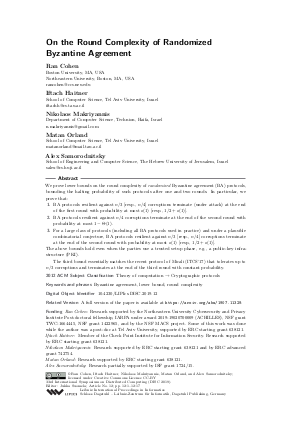LIPIcs.DISC.2019.12.pdf
- Filesize: 0.5 MB
- 17 pages

 Creative Commons Attribution 3.0 Unported license
Creative Commons Attribution 3.0 Unported license



























































Feedback for Dagstuhl Publishing